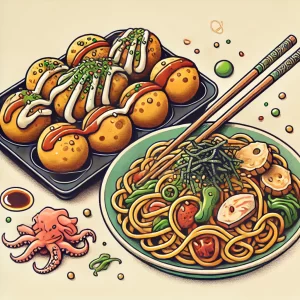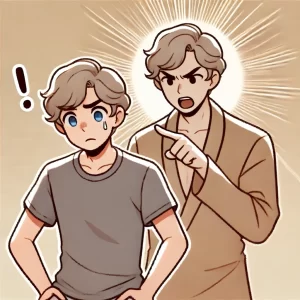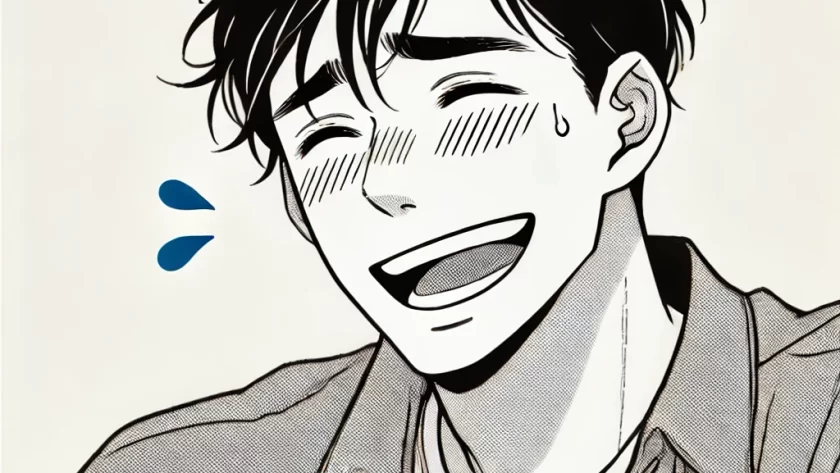何なんw [Nan Nan]
藤井風 [FUJII Kaze]
Words & Music : 藤井風 [FUJII Kaze]
FUJII Kaze is a musician born in Okayama Prefecture wiki in 1997. In 2024, he was the first guest of ‘tiny desk concerts JAPAN’ and started his tour in the US, making him one of the hottest musicians right now. Today, I will cover Fujii Kaze’s first digital single “何なんw / nan nan w.”
When this song was released, the authentic R&B sound was cool, and I think many people were drawn to that first. However, the lyrics also had a significant impact. First, let’s explain the Japanese in the title.
- 何(なに) [nani] : what
“何なん / nan nan” means “What is it?” In standard Japanese, it would be “何なの / nan nano”. This phrase uses Okayama dialect, which is roughly similar to Kansai dialect if we ignore the finer details.
While standard Japanese centers around Tokyo, Kansai dialect is the most famous regional dialect centered around Osaka. In pop music lyrics, standard Japanese is usually used, but occasionally Kansai dialect is mixed in to add a comedic or casual touch. Okayama dialect has a more rural feel compared to Osaka, and frankly, it might be seen as uncool, so most people wouldn’t think to use it in lyrics. However, I think he uses this dialect confidently because his musicality is sophisticated enough to not be overshadowed by it. By the way, I lived in Tokyo and Kansai for a long time, but now I live near Okayama.
“w” in “何なんw” is a net slang equivalent to “lol” in English. It can be pronounced as “wara,” derived from “笑う / warau” (=laugh). Before the internet, it was expressed as “何なん(笑)”, but now it has evolved into “w.” Recently, because “w” looks like grass, it is also referred to as “草 / kusa” (=grass). For example, “岡山より田舎に住んでるやつが偉そうに解説してて草” (=Wow, someone who lives in a more rural area than Okayama and pretends to know better lol.)
So “何なんw” can be understood as “WTF lol.”
あんたのその歯にはさがった青さ粉に
anta no sono ha ni hasagatta aosako ni
ふれるべきか否かで少し悩んでる
fureru beki ka ina ka de sukoshi nayanderu
口にしない方がいい真実もあるから
kuchi ni shinai hō ga ii shinjitsu mo aru kara
- あんた(あんた) [anta] : you
- その(その) [sono] : that
- 歯(は) [ha] : tooth
- はさまった(はさまった) [hasamatta] : stuck
- ふれる(ふれる) [fureru] : touch
- 少し(すこし) [sukoshi] : a little
- 悩んでる(なやんでる) [nayanderu] : worrying
- 口にする(くちにする) [kuchi ni suru] : mention
- いい(いい) [ii] : good
- 真実(しんじつ) [shinjitsu] : truth
- ある(ある) [aru] : exist
(translation) “The seaweed stuck in your teeth,
I’m slightly worried whether to mention it or not.
Because some truths are better left unsaid.”
“あんた / anta” is a variation of “あなた / anata,” which is a slightly rude way of saying “you.” It is commonly used in rural areas, especially by mothers talking to their children.
I’ve never heard the word “はさがった / hasagatta” before, but it seems similar to “はさまった / hasamatta” (stuck).
“青さ粉 / aosa ko” refers to seaweed flakes.
Everyone in Japan has had the embarrassing experience of having small green seaweed flakes stuck to their teeth while laughing google. It looks very silly and is quite embarrassing. You should be careful when eating dishes like takoyaki wiki or yakisoba wiki, which are famous in Osaka.

…知らない方が良かったなんて言わないで居て
shiranai hō ga yokatta nante iwanaide ite
何があってもずっと大好きなのに
nani ga attemo zutto daisuki na noni
どんなときも ここにいるのに
donna toki mo koko ni iru noni
近すぎて 見えなくて ムシされて
chikasugite mienakute mushi sarete
- 知る(しる) [shiru] : know
- 良い(いい) [ii] : good
- 言う(いう) [iu] : say
- ずっと(ずっと) [zutto] : forever
- 大好き(だいすき) [daisuki] : love
- どんな(どんな) [donna] : any
- とき(とき) [toki] : time
- ここ(ここ) [koko] : here
- いる(いる) [iru] : be
- 近い(ちかい) [chikai] : close
- 見える(みえる) [mieru] : see
- 無視する(むしする) [mushi suru] : ignore
(translation) “Please don’t say you wish you hadn’t known.
No matter what happens, I will always love you.
I’m always here,
too close to see, being ignored.”
Did he point out the seaweed stuck in their teeth? It seems like they said they wish they hadn’t known. But usually, I think it’s better to point it out for their own sake.
雨の中一人行くあんた
ame no naka hitori iku anta
心の中でささやくのよ そっちに行ってはダメと
kokoro no naka de sasayaku no yo socchi ni itte wa dame to
聞かないフリ続けるあんた
kikanai furi tsuzukeru anta
勢いにまかせて 肥溜めへとダイブする
ikioi ni makasete kodame e to daibu suru
- 雨(あめ) [ame] : rain
- 中(なか) [naka] : inside
- 一人(ひとり) [hitori] : alone
- 行く(いく) [iku] : go
- 心(こころ) [kokoro] : heart
- ささやく(ささやく) [sasayaku] : whisper
- そっち(そっち) [socchi] : that way
- ダメ(だめ) [dame] : no good
- 聞く(きく) [kiku] : hear
- ふり(ふり) [furi] : pretense
- 続ける(つづける) [tsuzukeru] : continue
- 勢い(いきおい) [ikioi] : momentum
- 肥溜め(こだめ) [kodame] : manure pit
- ダイブ(だいぶ) [daibu] : dive
(translation) “You walk alone in the rain,
whispering in your heart, ‘Don’t go that way.’
You keep pretending not to hear,
and dive into a manure pit with momentum.”
Even though it’s rural Japan, I don’t think manure pits exist in modern times. They might have existed until around the 1970s.

それは何なん
sore wa nan nan
先がけてワシは言うたが
sakigakete washi wa iuta ga
それならば何なん
sore naraba nan nan
何で何も聞いてくれんかったん
nande nani mo kiitekurenkattan
その顔は何なんw
sono kao wa nan nan
花咲く町の角誓った
hana saku machi no kado chikatta
あの時の笑顔は何なん
ano toki no egao wa nan nan
あの時の涙は何じゃったん
ano toki no namida wa nan jattan
- それ(それ) [sore] : that
- さきがけて(さきがけて) [sakigakete] : beforehand
- わし(わし) [washi] : I (dialect)
- ならば(ならば) [naraba] : if
- 何で(なんで) [nande] : why
- 何も(なにも) [nanimo] : nothing
- 顔(かお) [kao] : face
- 花(はな) [hana] : flower
- 咲く(さく) [saku] : bloom
- 町(まち) [machi] : town
- 角(かど) [kado] : corner
- 誓う(ちかう) [chikau] : vow
- あの(あの) [ano] : that
- 時(とき) [toki] : time
- 笑顔(えがお) [egao] : smile
- 涙(なみだ) [namida] : tears
(translation) “What is that?
I said it beforehand.
Then what is it?
Why didn’t you listen to me?
What is that face? lol
Vowed at the corner of the blooming town,
what was that smile at that time?
What were those tears at that time?”
There are many dialects here. “わし / Washi”which is the variant form of “わたし / watashi” (=I) and the assertive auxiliary verb “じゃ / ja” are words used by samurai in period dramas or by stereotypical old men, giving them an old-fashioned image. However, some young people in Okayama also use these terms.
Using “何 / nani” (=what) instead of “なぜ / naze” (=why) conveys an confused tone. I won’t explain in detail, but there is a concept in Japanese comedy culture called “ツッコミ / tsukkomi,” which involves correcting or questioning crazy behavior. Dialects are often used in comedy because they add a comical and fast-paced touch. The phrase “何なん / nan nan” is a staple in “tsukkomi.” When followed by “w,” it conveys a sense of affection as well.
Fujii Kaze mentioned that this song is about the concept of “higher self.” A higher dimension of oneself scolds or pleads with oneself. So, the seaweed stuck in the teeth, the person who pointed it out, the person who dived into the manure pit, and the person who said “nan nan” were all the same person in this story.

たまには大胆に攻めたら良い
tamani wa daitan ni semetara ii
時には慎重に歩めば良い
toki ni wa shinchō ni ayumeba ii
真実なんてもんはとっくのとうに
shinjitsu nante mon wa tokku no tō ni
知っていることを知らないだけでしょう
shitte iru koto o shiranai dake deshō
- たまに(たまに) [tamani] : occasionally
- 大胆(だいたん) [daitan] : bold
- 攻める(せめる) [semeru] : attack
- 慎重(しんちょう) [shinchō] : cautious
- 歩む(あゆむ) [ayumu] : walk
(translation) “Sometimes you should be bold,
and sometimes you should walk cautiously.
You probably already know the truth for a long time,
but just don’t realize it.”
あれほど刻んだ後悔も
are hodo kizanda kōkai mo
くり返す毎日の中で かき消されていくのね
kurikaesu mainichi no naka de kakikesarete iku no ne
真っさらになった決意を胸に
massara ni natta ketsui o mune ni
あんたは堂々と また肥溜めへとダイブ
anta wa dōdō to mata kodame e to daibu
- 後悔(こうかい) [kōkai] : regret
- くり返す(くりかえす) [kurikaesu] : repeat
- 毎日(まいにち) [mainichi] : everyday
- かき消す(かきけす) [kakikesu] : erase
- まっさら(まっさら) [massara] : brand-new
- 決意(けつい) [ketsui] : determination
- 堂々と(どうどうと) [dōdō to] : boldly
(translation) “All those regrets,
are erased in the repeating days.
With a brand-new determination in your heart,
you boldly dive into the manure pit again.”
それは何なん
sore wa nan nan
先がけてワシは言うたが
sakigakete washi wa iuta ga
それならば何なん
sore naraba nan nan
何で何も聞いてくれんかったん
nande nani mo kiitekurenkattan
その顔は何なんw
sono kao wa nan nan w
花咲く町の角誓った
hana saku machi no kado chikatta
あの時の笑顔は何なん
ano toki no egao wa nan nan
あの時の涙は何じゃったん
ano toki no namida wa nan jattan
神様たすけて、やばめ やばめ やばめ やばめ
kamisama tasukete yabame yabame yabame yabame
足元照らして、やばめ やばめ やばめ やばめ
ashimoto terashite yabame yabame yabame yabame
- 神様(かみさま) [kamisama] : God
- たすける(たすける) [tasukeru] : help
- やばい(やばい) [yabai] : bad, dangerous
- 足元(あしもと) [ashimoto] : feet
- 照らす(てらす) [terasu] : illuminate
(translation) “God help me, it’s bad, bad, bad, bad.
Illuminate my feet, it’s bad, bad, bad, bad.”
“やばい / yabai” originally means dangerous or terrible, but recently, young people use it in a positive sense, like amazing or cool. The transformation of “やばい / yabai” to “やばめ / yabame” is very youthful, nonsensical, but somehow feels real.
目を閉じてみて 心の耳すまして 優しい気持ちで
me o tojite mite kokoro no mimi sumashite yasashii kimochi de
答えを聴いて もう歌わせないで
kotae o kiite mō utawasenai de
裏切りのブルース
uragiri no burūsu
- 目(め) [me] : eyes
- 閉じる(とじる) [tojiru] : close
- 心(こころ) [kokoro] : heart
- 耳(みみ) [mimi] : ears
- すます(すます) [sumasu] : listen carefully
- 優しい(やさしい) [yasashii] : gentle
- 気持ち(きもち) [kimochi] : feelings
- 答え(こたえ) [kotae] : answer
- 聴く(きく) [kiku] : listen
- 歌う(うたう) [utau] : sing
- 裏切り(うらぎり) [uragiri] : betrayal
- ブルース(ぶるーす) [burūsu] : blues
(translation) “Close your eyes and listen with your heart’s ears gently.
Hear the answer and don’t let it sing anymore.
The blues of betrayal.”
それは「何なんw」
sore wa nan nan
…ワシは言うたが
washi wa iuta ga
それならば何なん
sore naraba nan nan
何で聞いてくれんかったん
nande kiitekurenkattan
何なん 何なん 何なん
nan nan nan nan nan
あの時の笑顔は何なん
ano toki no egao wa nan nan
あの時の涙は何じゃったん
ano toki no namida wa nan jattan
何なん
nan nan
There were more dialects than I expected. “わし / washi” is said to be Fujii’s actual personal pronoun. Japanese people each have their own personal pronoun, like an ID card. This song is strongly felt to be told in Fujii’s own words and sung in his own voice.
Thanks for reading! Feel free to comment if you have any feedback or questions.
Follow me on X.



